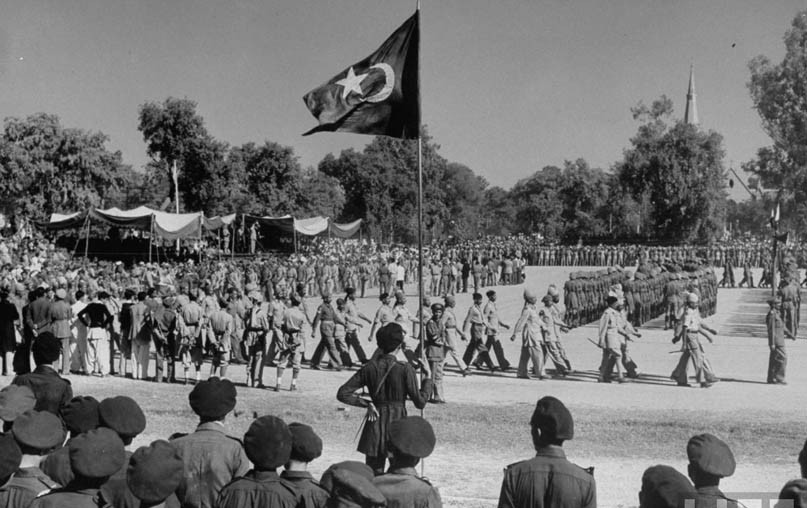
Pakistan has treated the subject of history and heritage as ‘national security’ and ‘national ideology’ issue. Hence, a very selective reading of the past had to be ‘protected’ by the state

A few days ago, a foreign newspaper reported that expert archaeologists working on the Indus Valley Civilisation in Pakistan had decided to quit excavating at heritage sites. It cited one Harvard professor as saying that "It is actually preserved when it is buried." Where this reality should lead us to hang our heads in shame, a good few, I reckon, are actually happy about the decision of these experts.
The above reminds me of a discussion once with a former foreign secretary of Pakistan, where he mentioned that once he was updating a coffee table book on Pakistan as junior foreign service officer, that he was told by one of his superiors -- a former Civil Service of Pakistan [CSP] officer, that he should ‘skip’ the non-Muslim parts of Pakistan’s history. The reason the former foreign secretary emphasised was that the officer was from the erstwhile CSP, the direct heir to the famed Indian Civil Service, and it was to underscore that such a selective reading of history was not simply confined to the Zia era, but predated it. In fact, such a selective reading of history not only permeated the thinking of the All India Muslim League, but also Pakistan since its inception.
Since Pakistan was an ‘idea’ which germinated in the All India Muslim League, and as the Muslim League was only open to Muslims, one can understand its focus on Muslim history alone. The Muslim League was organised on an all India basis and hoped to represent a community -- which it termed a ‘nation’ -- and therefore there was no need to be territorially inclusive.
The Muslim League could simply focus on Muslim heritage, and celebrate it. However, when Pakistan was born the reality changed. Not only was the new country territorial, it had a large number of non-Muslims, and its heritage was not exclusively Muslim. Hence, the ideas and ways of the Muslim League could not simply translate into the new nation-state. The founder of the country, the Quaid-e-Azam, realised this fact and therefore resigned from his president-ship of the Muslim League in December 1947, as he could no longer be the president of a ‘communal organisation’ now that he had assumed the Governor-General-ship of the country.
As Governor-General, Jinnah was the defacto head of state of all the people of Pakistan, not just Muslims. However, despite this clear distinction by Jinnah, others in his government did not follow suit, and hence the long struggle of Pakistan with its history started.
From its inception, Pakistan has treated the subject of history and heritage as ‘national security’ and ‘national ideology’ issue. Of course, a very selective reading of the past had to be ‘protected’ by the state. As the first education minister of Pakistan, Fazlur Rahman -- who was also incidentally the interior minister, remarked at the Second Advisory Board of Education in 1949: "History must be written on a national basis and the task of writing it must be undertaken by the State." So the history which did not ‘fit’ into this framework, was better buried.
Viewing history through the singular lens of religion has been the norm in Pakistan, even during the ‘liberal’ and ‘modern’ regime of Ayub Khan. Long hailed to be the modernist era in Pakistan, senior members of the Ayub regime were toeing the line when it came to history and heritage. Hence in 1962, the government deemed it improper to teach ancient history to school children. Thence, with a stroke of a pen were removed all references to the Indus Valley, Gandhara, the Mauryans and the Guptas. Why learn all these strange names and events, when history could simply start in 711 AD with the arrival of Muhammad bin Qasim on the shores of Sindh.
Pakistan’s existential crisis is critically tied to its imagination as a nation and its reality as a country with defined boundaries. Pakistan’s coherence as a modern nation-state depends on a solution of this dichotomy. An acceptance of the land of Pakistan with its myriad of cultures, traditions and inheritances, will not only make the country more tolerant and pluralistic, it will enable it to blend its Islamic heritage with its locality, creating a truly unique and creative admixture.
For a long time the national song, Sohni Dharti -- beautiful land -- has resonated with me as one of the most emotionally charged national songs in Pakistan. Like me, I am sure, scores of Pakistanis feel a great sense of patriotism when it is sung and even a tear or two are shed remembering the greatness of our country. But what is distinctive about this song is simply that it praises the ‘land’ -- the dharti -- not an imaginary nation, not a select few, but the land of Pakistan. Therefore, if we really love our beautiful land we would also love, cherish and preserve all its history and heritage, and not let it be buried through a singular prism.